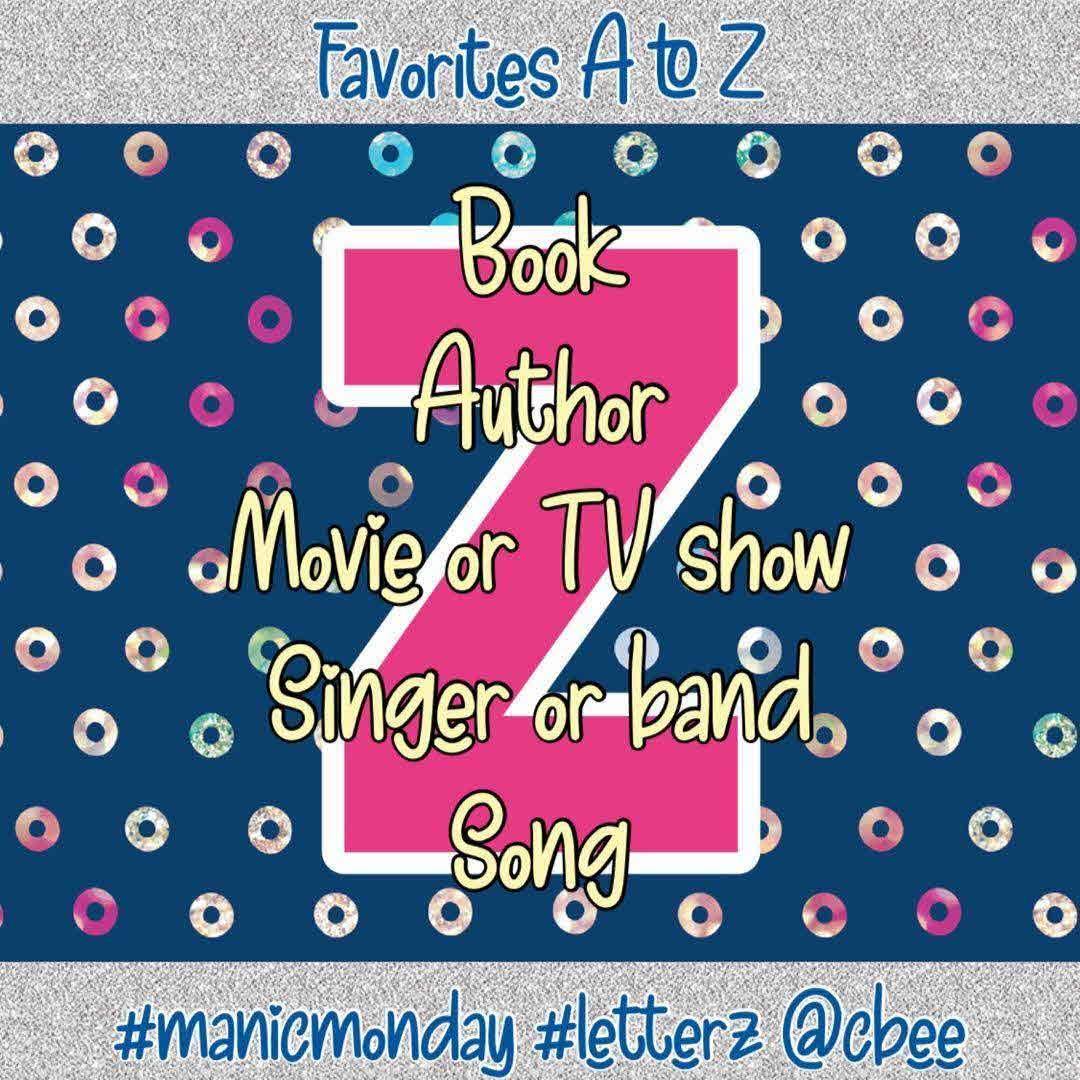
📖 Zorba the Greek
✍️ Stefan Zweig
🎬 Zombieland
🎤 Led Zeppelin again? Or... Zepparella
🎶 Zombie (The Cranberries), Ziggy Stardust (David Bowie), and sneaking in Mr. Zebra (Tori Amos)
#ManicMonday #LetterZ
@CBee

📖 Zorba the Greek
✍️ Stefan Zweig
🎬 Zombieland
🎤 Led Zeppelin again? Or... Zepparella
🎶 Zombie (The Cranberries), Ziggy Stardust (David Bowie), and sneaking in Mr. Zebra (Tori Amos)
#ManicMonday #LetterZ
@CBee
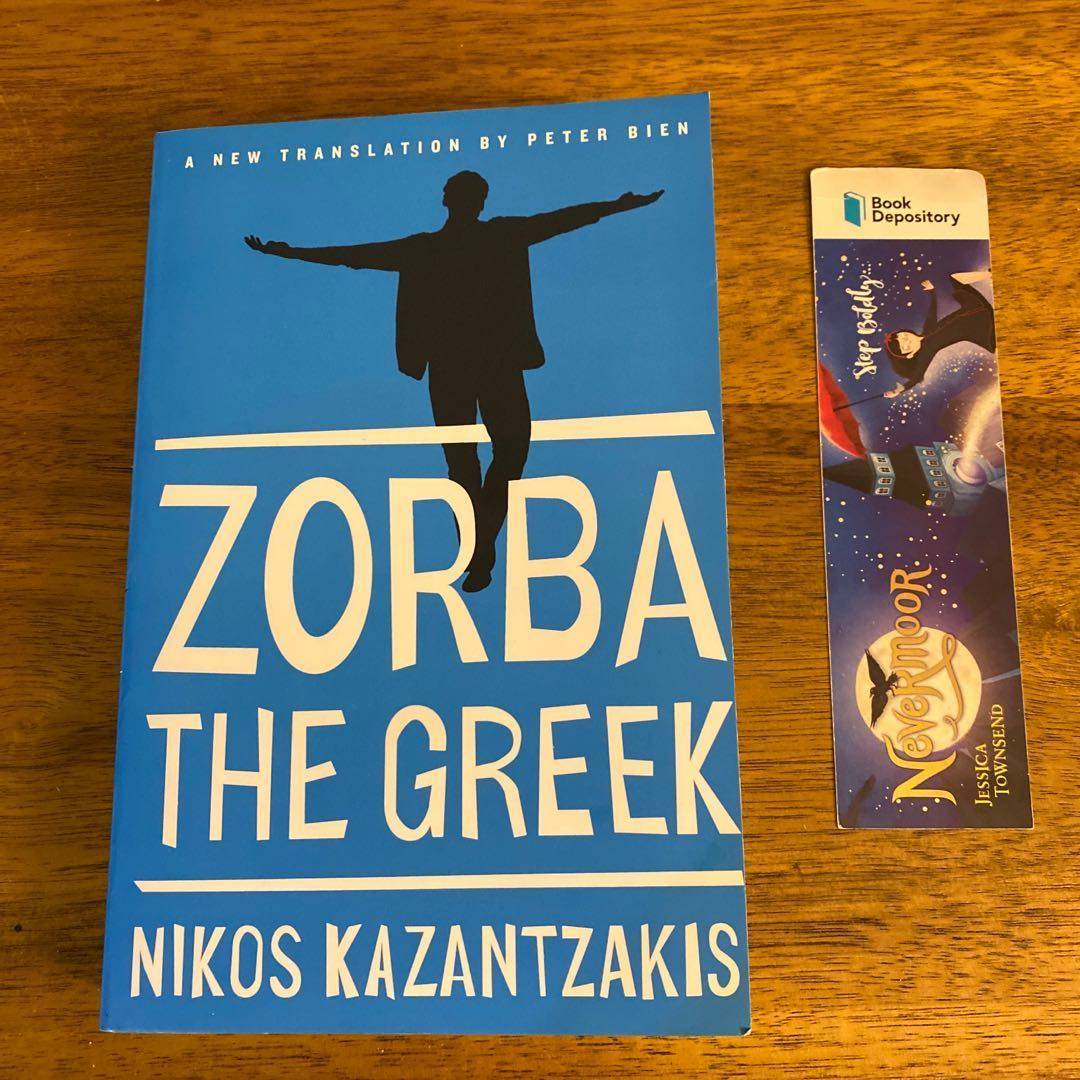
This book seems to have a lot of negative reviews -the characters are mostly male and exude misogyny. This, however isn‘t surprising when you consider that it takes place in a traditional, patriarchal Greece of the 1940s. It‘s steeped in religious symbolism once you get past the womanizing of Zorba to realize he is the argument against living the pious life concerned with the hereafter and instead embrace life in the now, living with full force.

I only made it 43% through this before bailing. The reader's voice was scratchy & weathered, which may suit the unnamed narrator, but wasn't exactly great to listen to at length. Add to it nothing much happens and I didn't find Zorba's constant philosophizing entertaining, just annoying. You can be a womanizer, but you have to be interesting, too, Zorba. Sheesh.
#foodandlit @butterfinger @texreader @catsandbooks
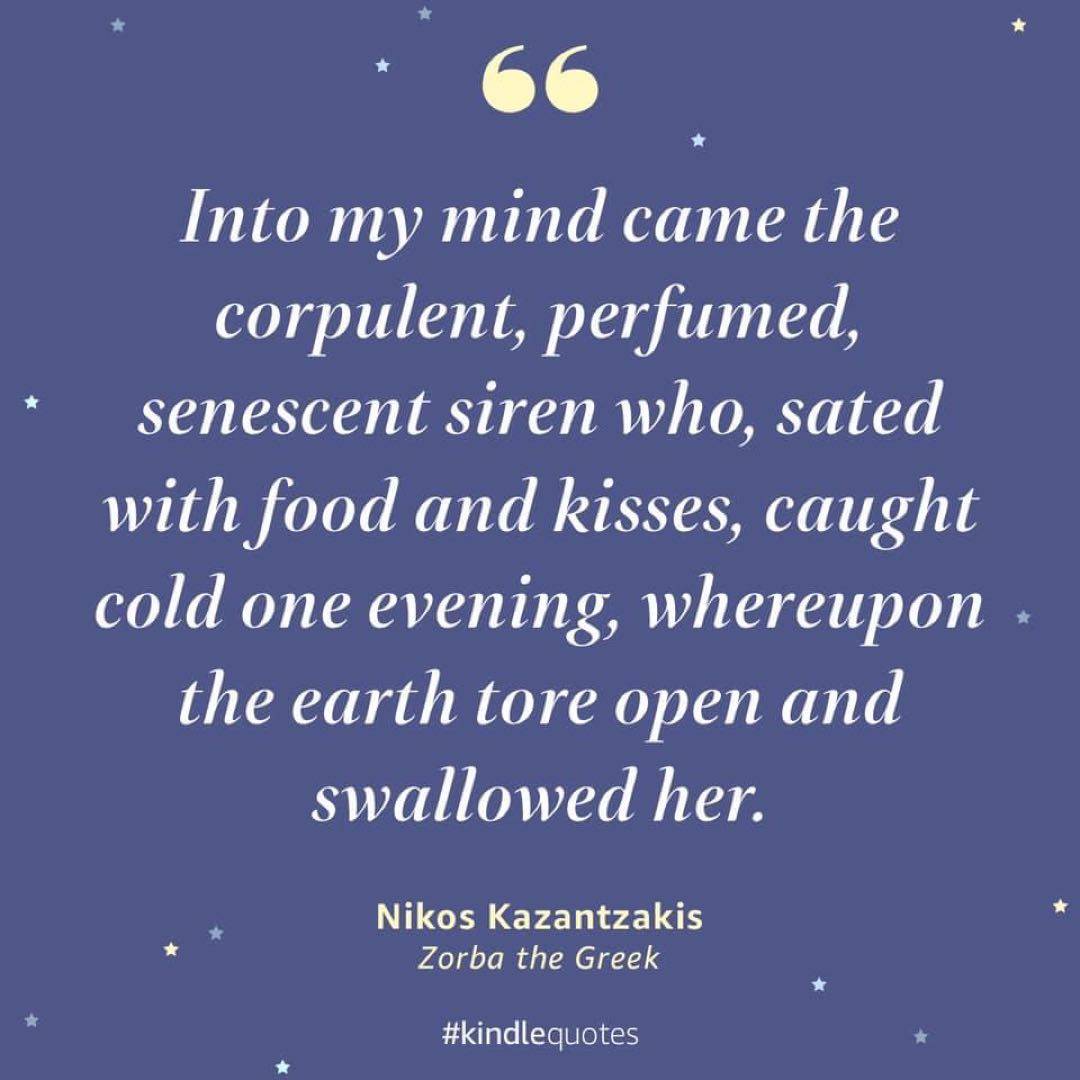
He could‘ve written, “I thought about my friend who died,” but instead he wrote...💕📚
Great first book of summer! What will be my last one?
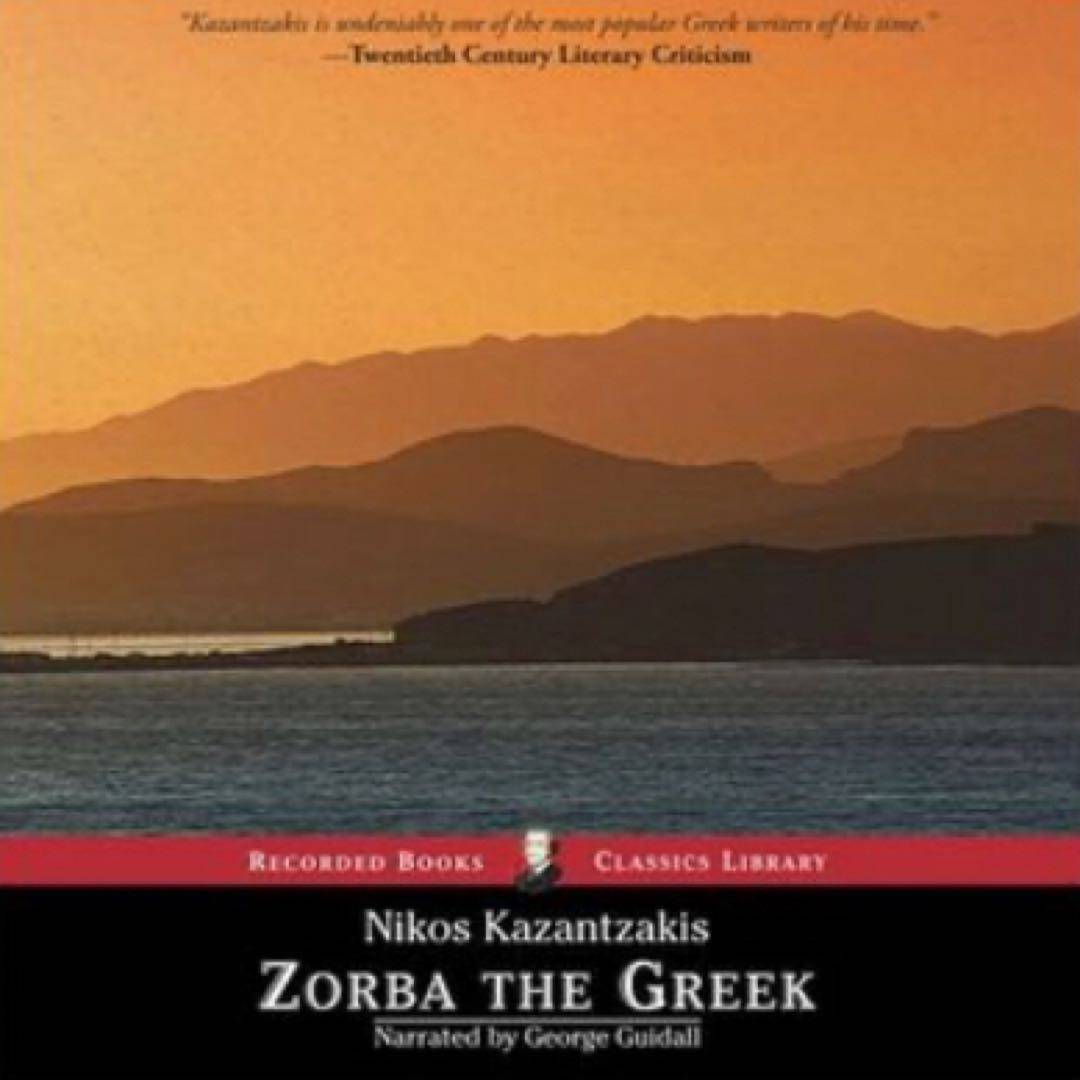
There were specific descriptions and lines in this that I enjoyed, but overall it was not for me. I had a harder time staying focused as I listened as well because I didn‘t care for the characters and just wasn‘t that interested in the story.
#Reading1001 #TBRTakedown March 2020
#ReadTheWorld #ReadingTheWorld #Greece #translated #audiobook #1001books
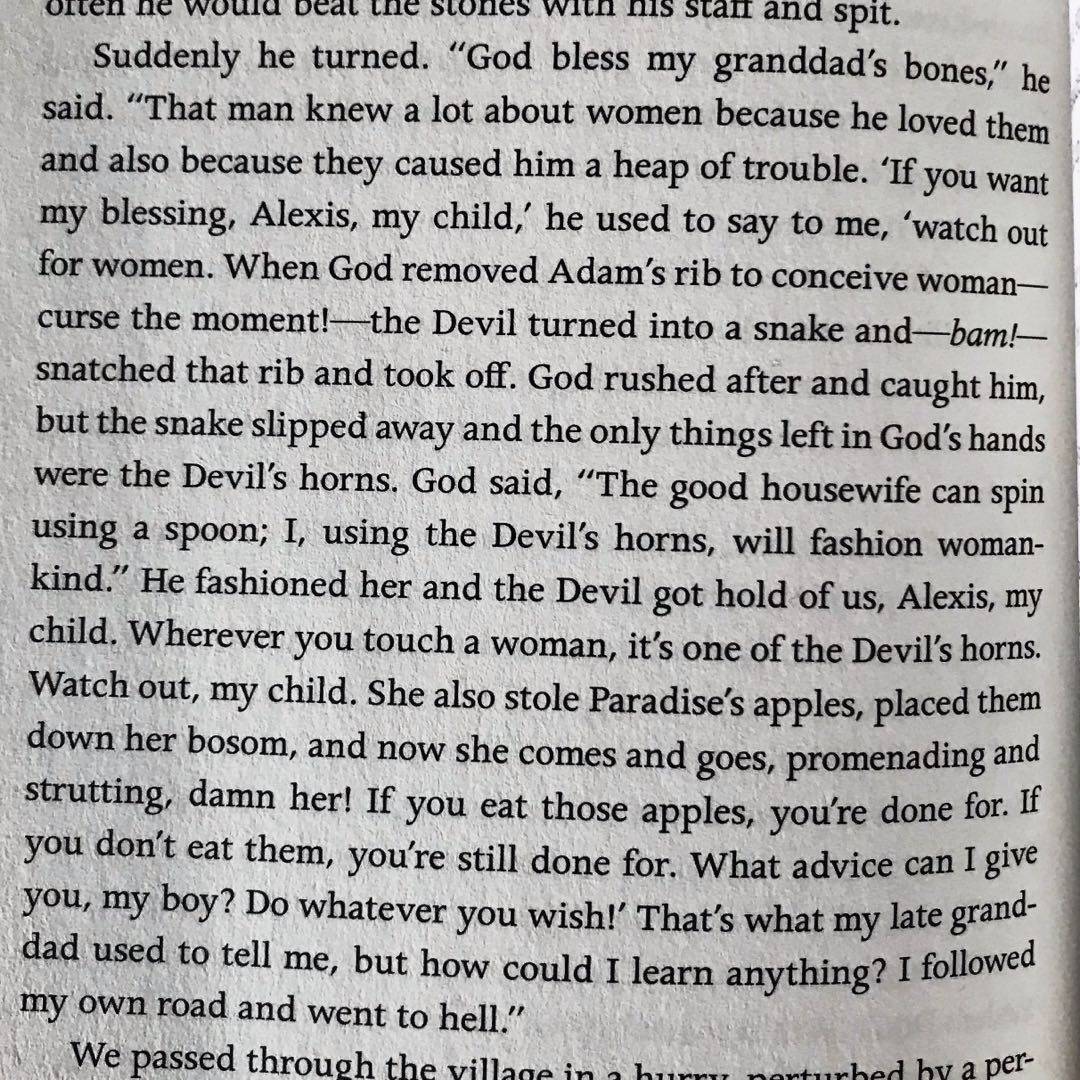
Yesterday I shared a few of the quotes from Zorba the Greek that I appreciated. However, I am not enjoying the story, and this page is just one example of the way it speaks about women that is the main reason why.
#1001books
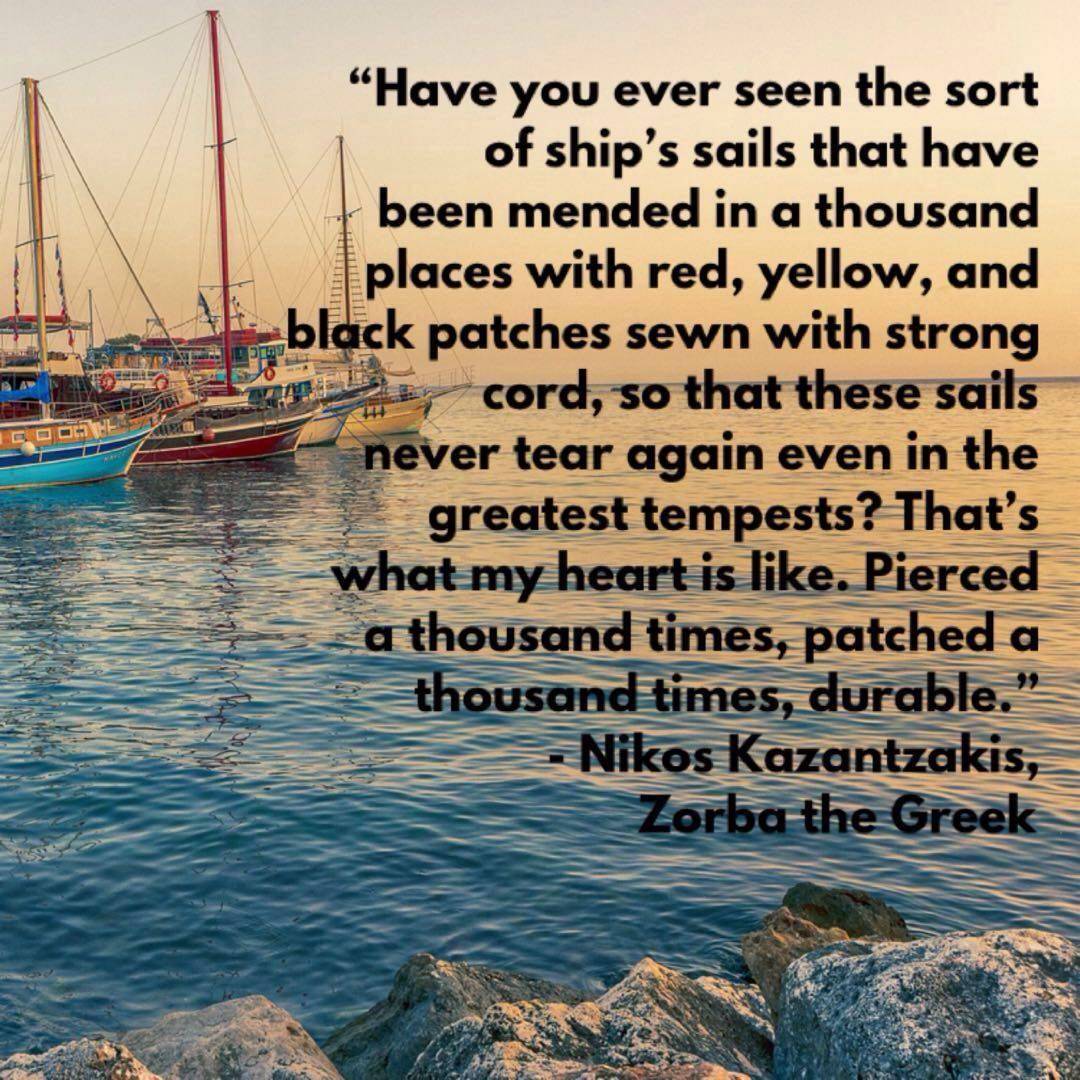
I can‘t say I‘m enjoying the story of this book, but it does have some good lines.
#1001books #quote
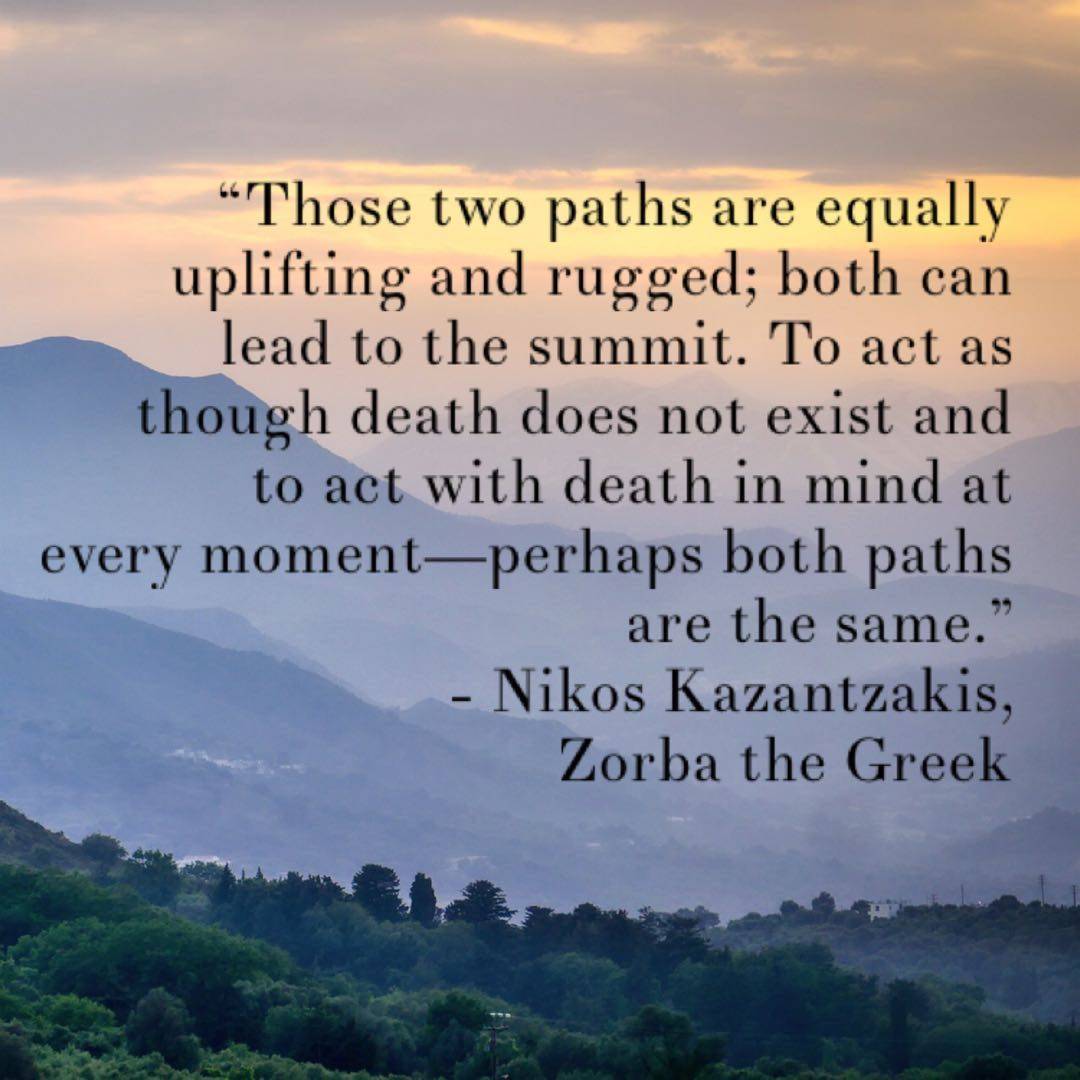
I can‘t say I‘m enjoying the story of this book, but it does have some good lines.
#1001books #quote
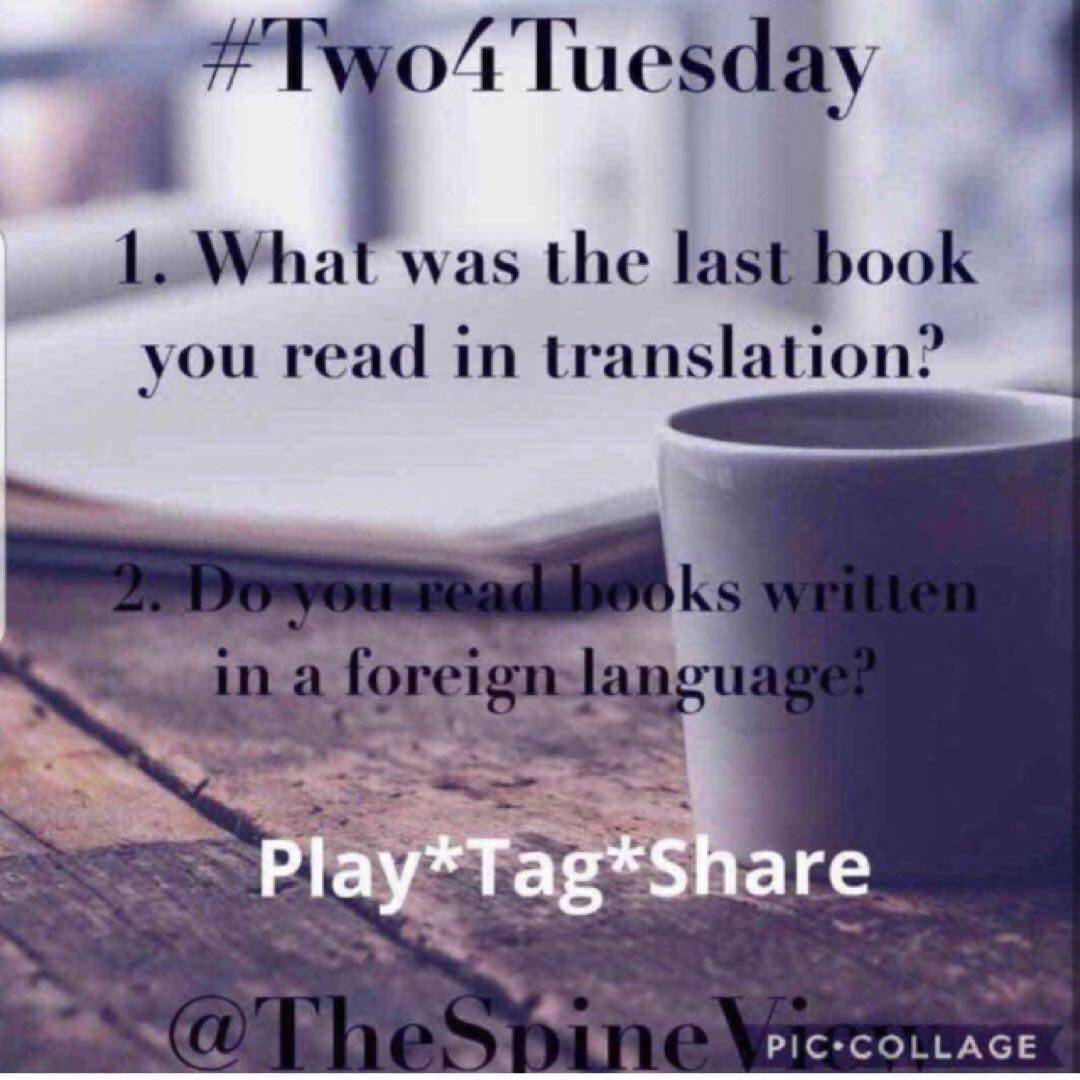
Good questions, @TheSpineView ! I‘m currently reading the English translation of Zorba the Greek, by Nikos Kazantzakis. I read books in German regularly and am starting to read in French again as I brush up on the language. #Two4Tuesday Tagging @robinb Hi, Robin! 👋


Athens airport (Greece) now has books on every table at the gates. Not a bad idea 😀
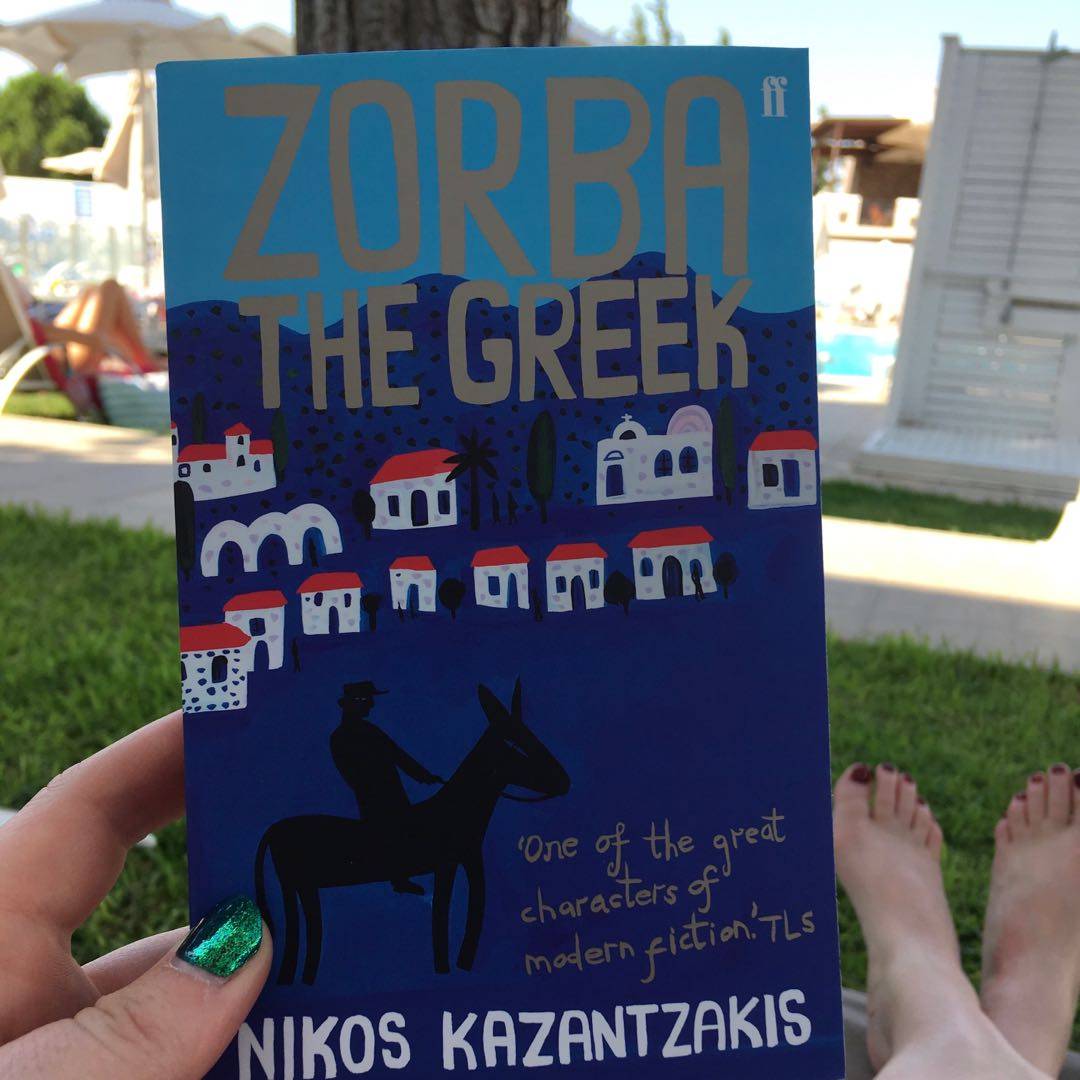
It‘s my last day in Greece so time to start my new book!
Isn‘t the cover delightful?

Litsy, it‘s been awhile. Two weeks in Greece was simply phenomenal. While I barely got any reading done, we did stop in this amazing book store in Oia. I picked up Zobra the Greek, even though the reviews are dicey, it just seemed the like the right choice (plus, I didn‘t have room for another edition of The Odyssey 😂).
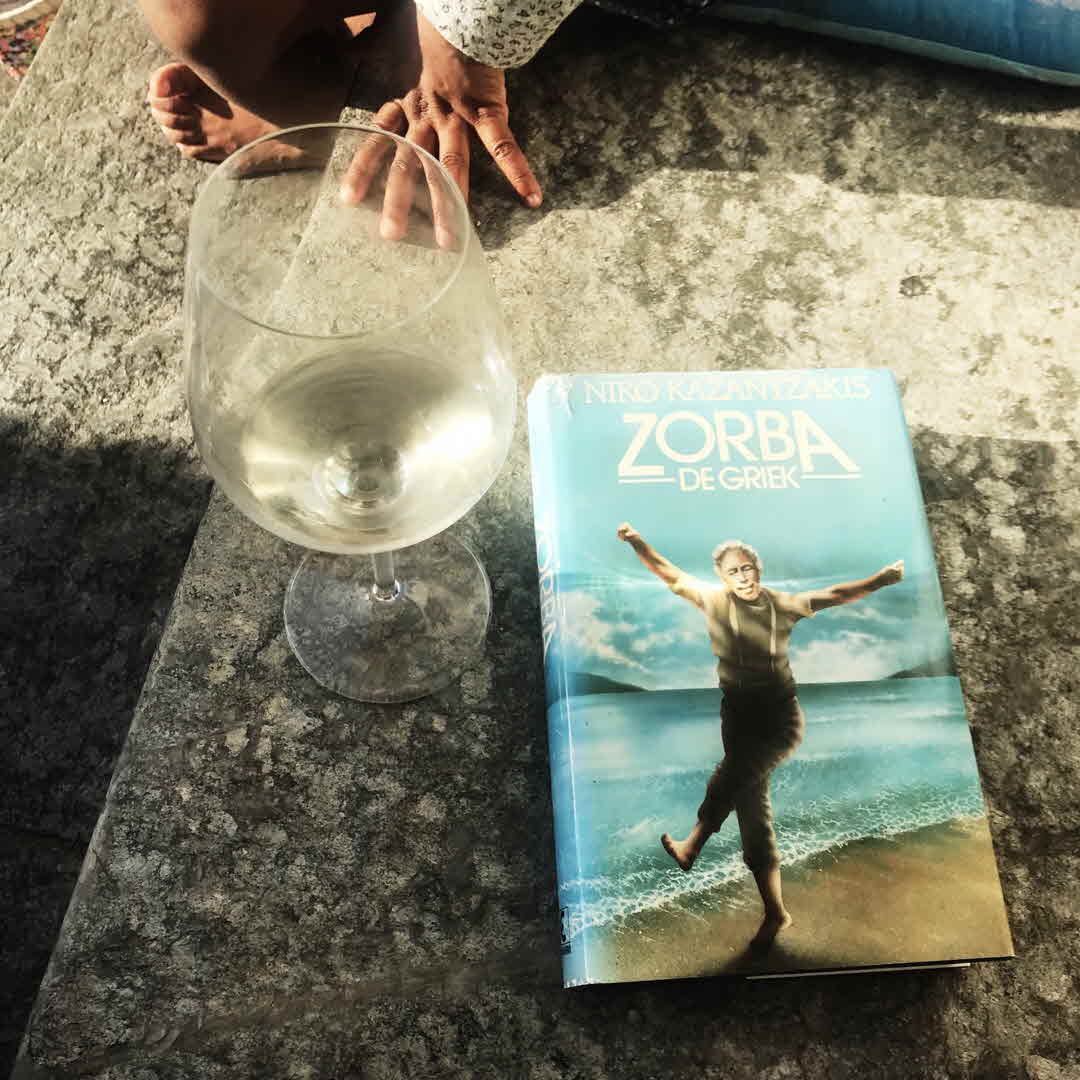
I started this for #readaroundtheworld. An unnamed narrator leaves for the island of Crete to exploit a mine. He brings Zorba to manage the work in the mine. Zorba turns out to be the man he always wanted to be: he does all he does with passion, whether he is #BusyEarning money, drinking, eating or ‘making women his‘. After a 100 pages I think I have enough though, I get the point and am not enjoying it at all. On to the next. #Aprella #1001books
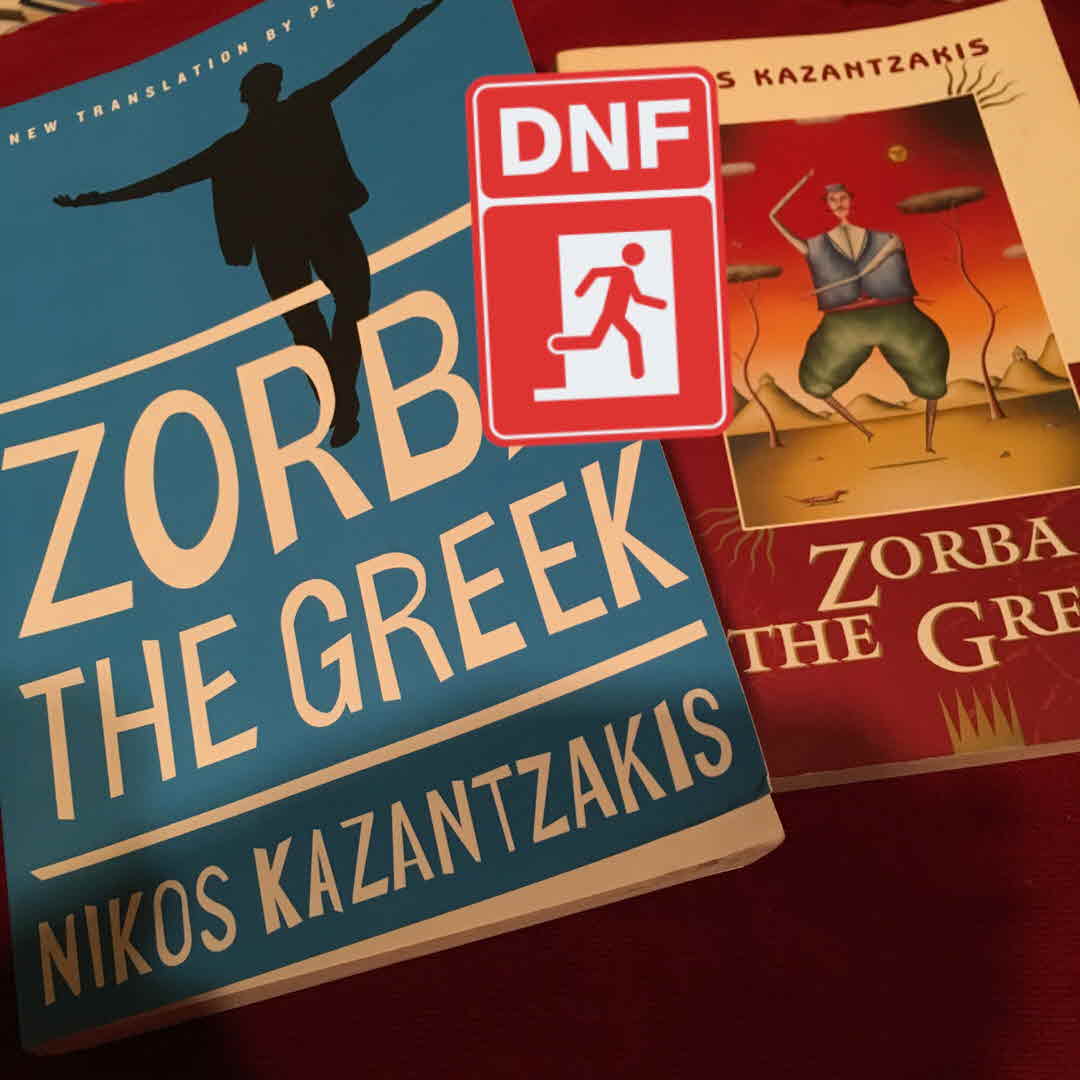
That dude in the middle isn't dancing, he's running away from what should be called Zorba the Misogynist. This would have been a better book if Zorba had been otherwise; also if it was more plot and fewer long conversations between him and the book's narrator. Maybe in the movie version, Anthony Quinn makes him more likable? (Glad both copies were at used prices!)
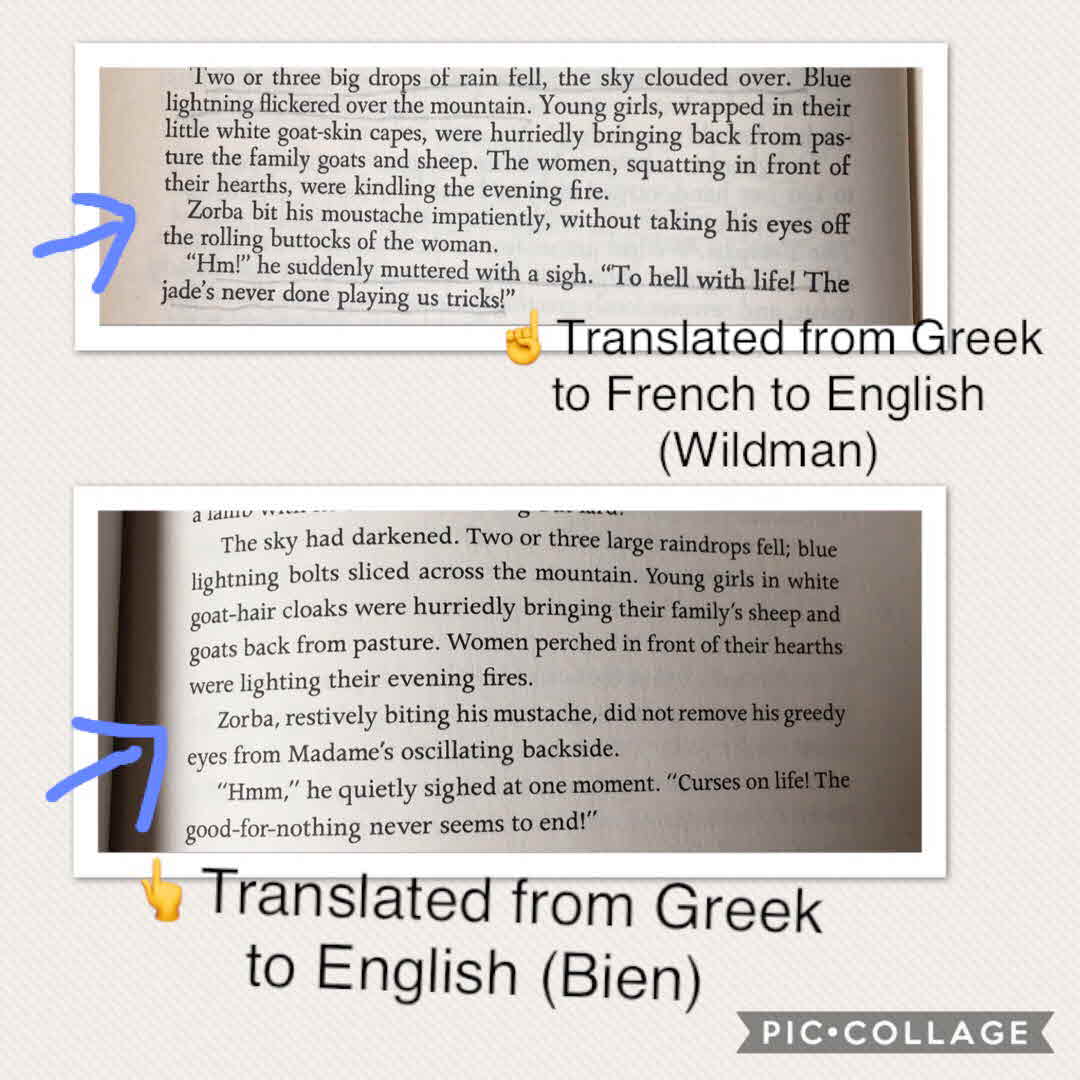
Hmm, so far it seems that Zorba may be a bit of a lecher 🤔. Reading the Bien translation of Zorba the Greek for #LitsyAtoZ (author last name K, though it also works for a Z title). Occasionally I refer to the used copy I have of the earlier translation, just for the heck of it.
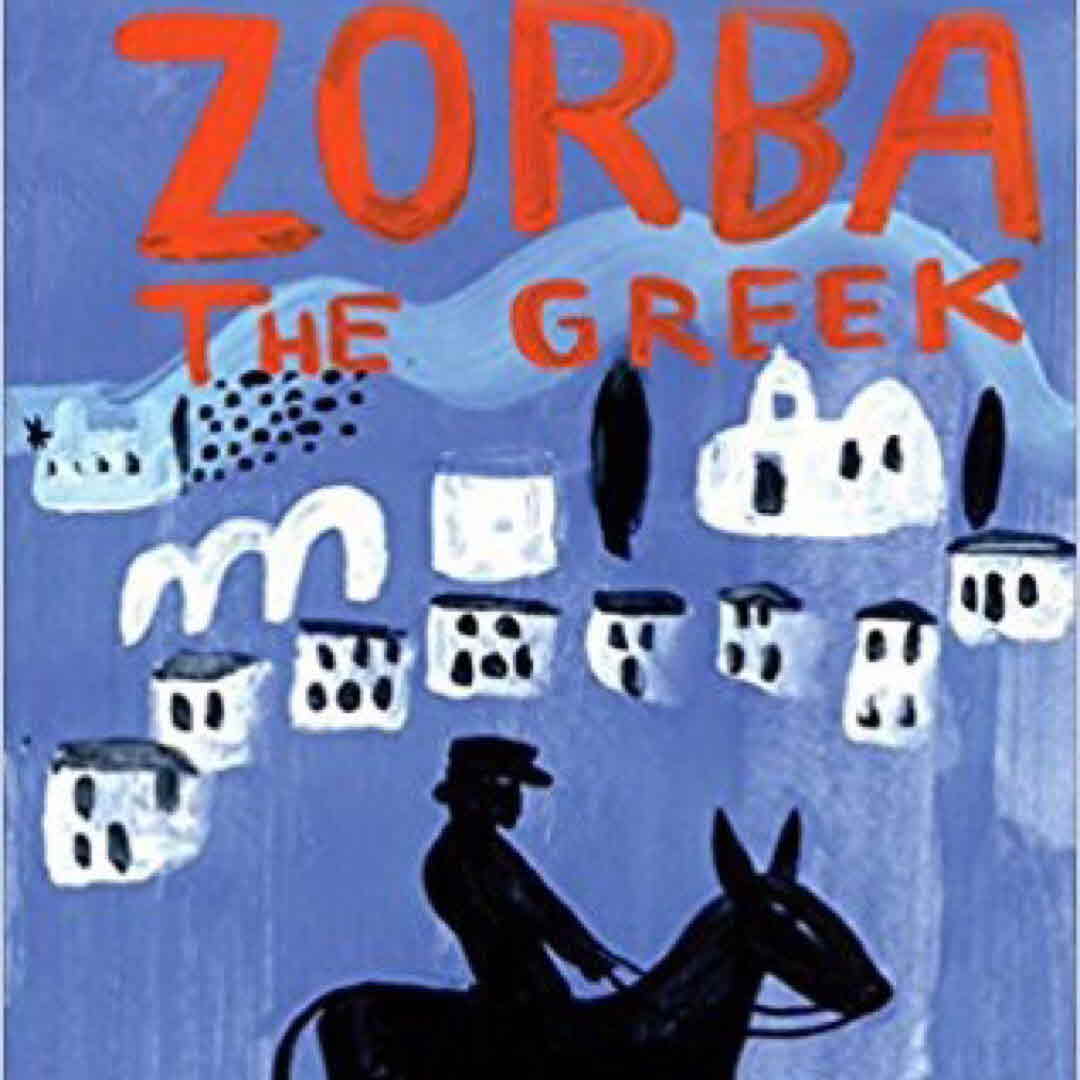
This had some interesting parts but I feel like Zorba's hedonistic life philosophy would have been more of a novelty back in the day when this was published. The plot just didn't grab me but I can see why some people love it.
This was my #StartsWithZ book for #litsyreadingchallenge and my 1946 book for #192019challenge.

I have a few #samebookdifferentcover books. Still TBR are Doctor Zhivago and Zorba the Greek; when I get to those I'll probably read the newer translations (in the bottom row). I don't like reading from mass markets any more but have hung onto the older Burr and Cat's Cradle anyway. I found the hardback Tortilla Curtain later and thought it was cool-looking but it doesn't really go with my other TC Boyle books which are mostly Penguin PBs.
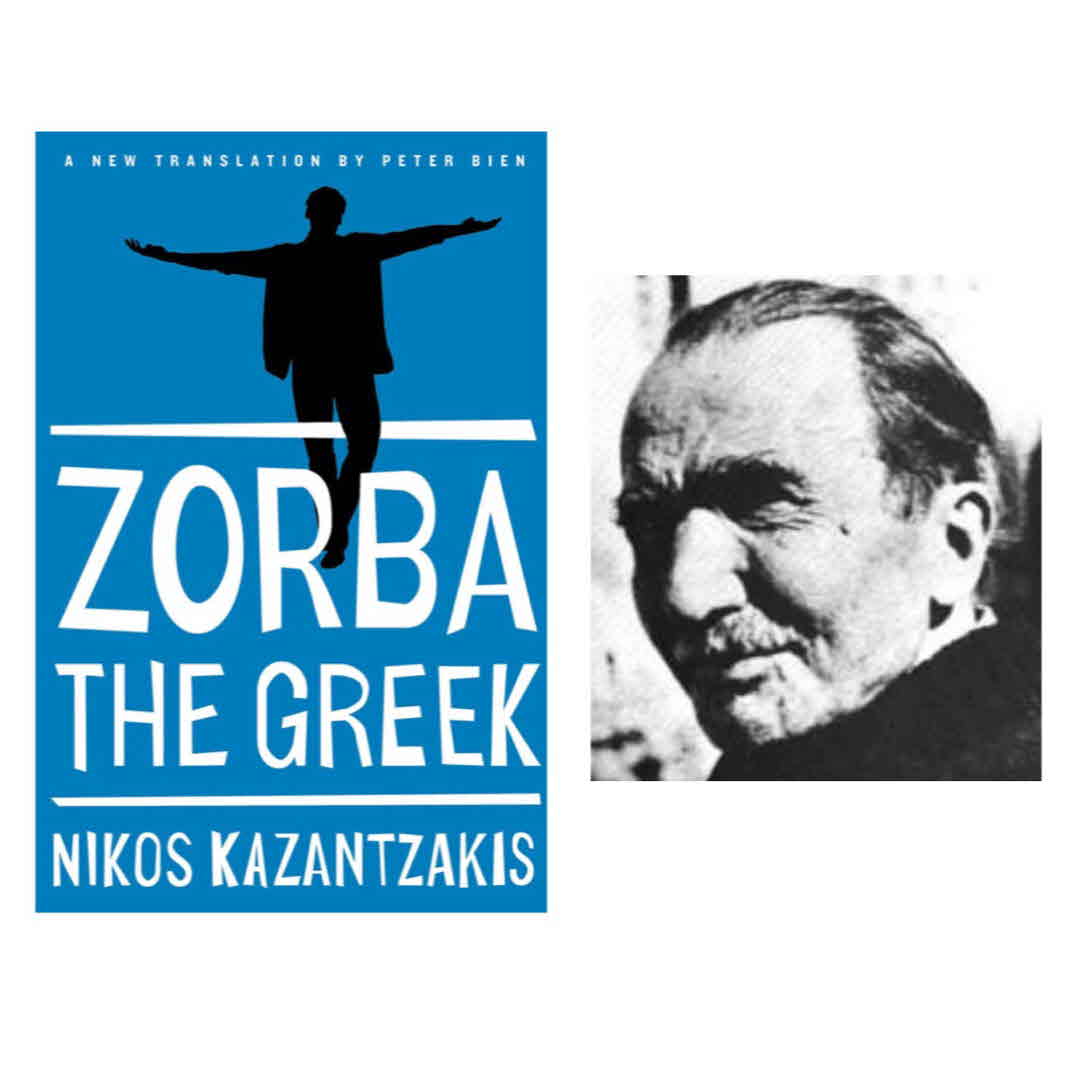
What can I say? It was all Greek to me. Bailed 10% in. The story wasn't at all interesting and I hated the prose.
Two equally steep and bold paths may lead to the same peak.
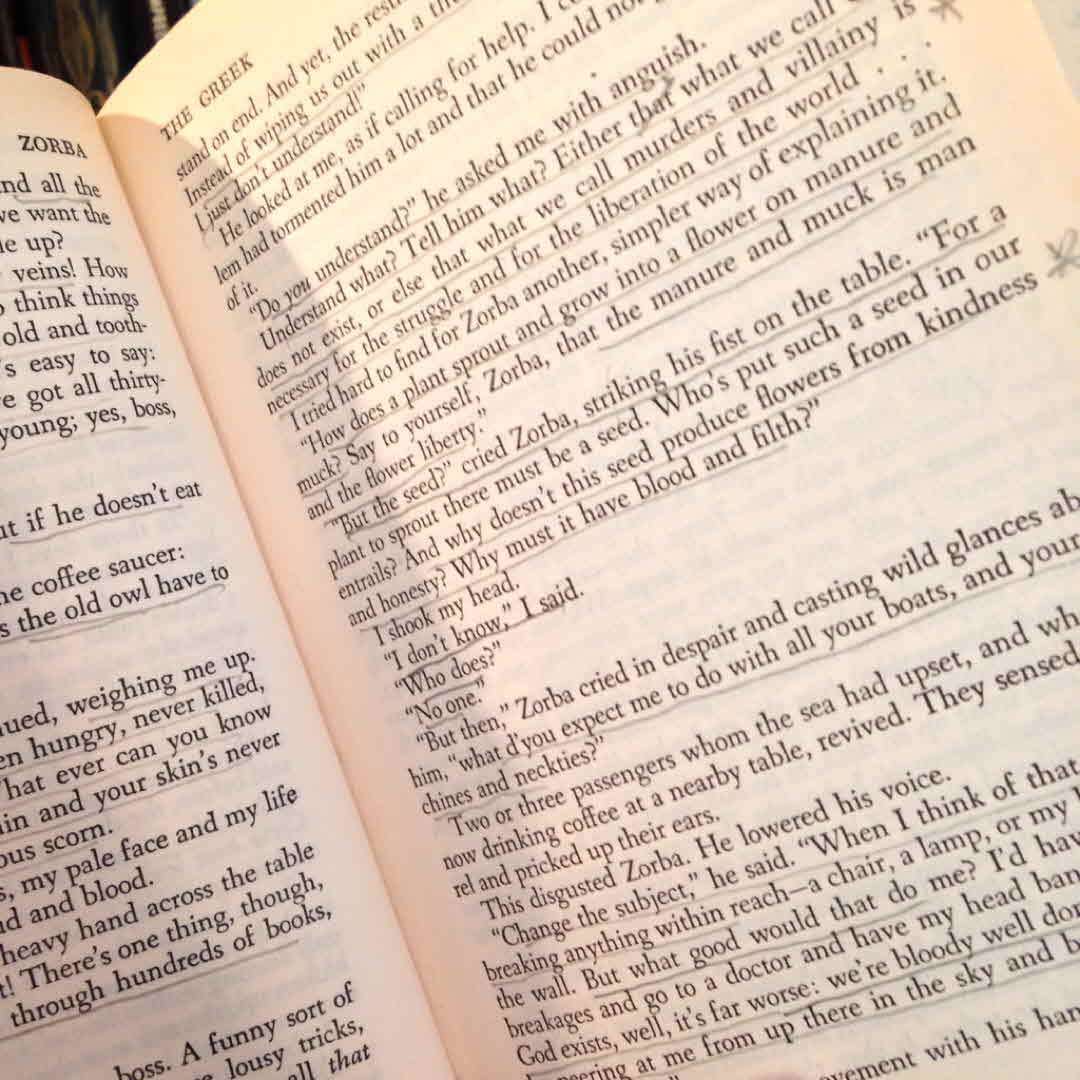
#booknerdproblems is when you look through a copy of a book you bought used and realize that nearly every page has already been underlined 😑. Now you have to decide whether to keep it or find a better copy
Luck is blind, they say. It can‘t see where it‘s going and keeps running into people…and the people it knocks into we call lucky! Well, to hell with luck if it's like that, I say!
I felt once more how simple and frugal a thing is happiness: a glass of wine, a roast chestnut, a wretched little brazier, the sound of the sea. Nothing else.

A good book & a long afternoon on a peaceful beach, the scent of dried thyme in the breeze... Just as happy as can be 😌🐬
I didn't really know what to expect from this to be honest. I also found the title character, Zorba, an odd character indeed.
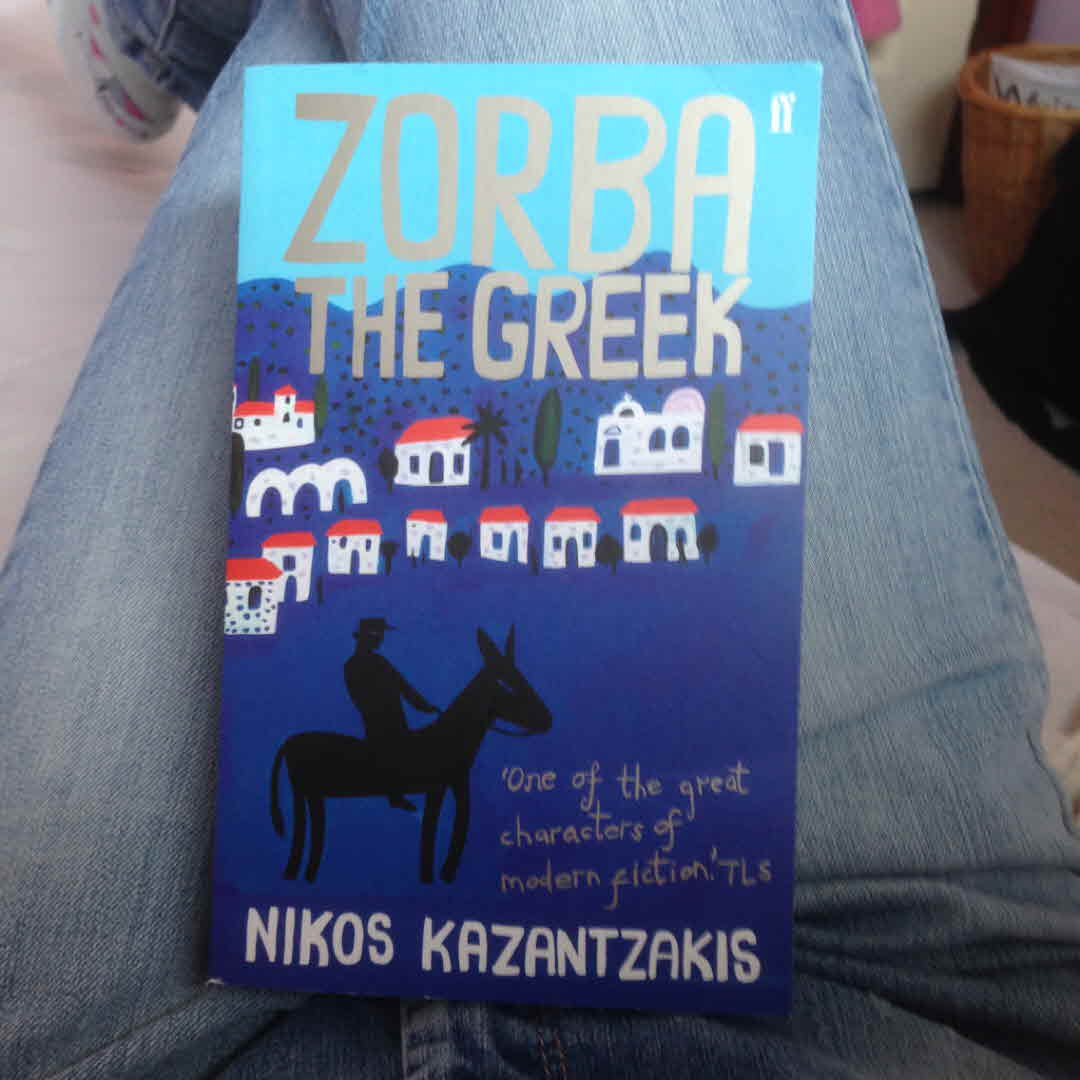
So this read is pretty much inspired by my boyfriend due to him sharing the name and the ethnicity 😛